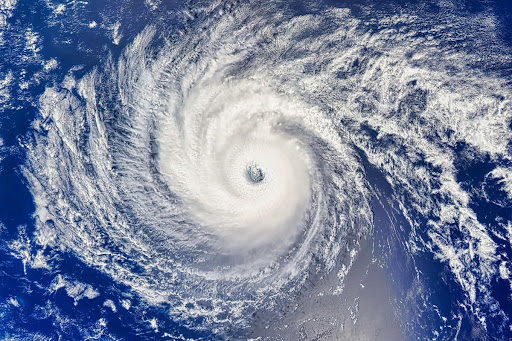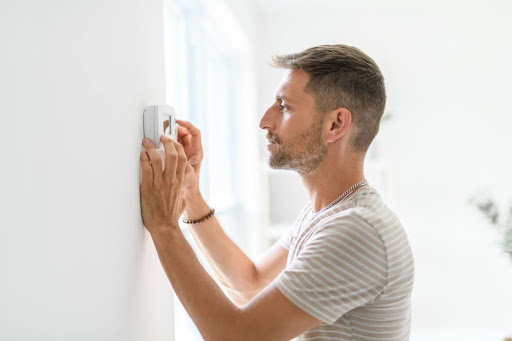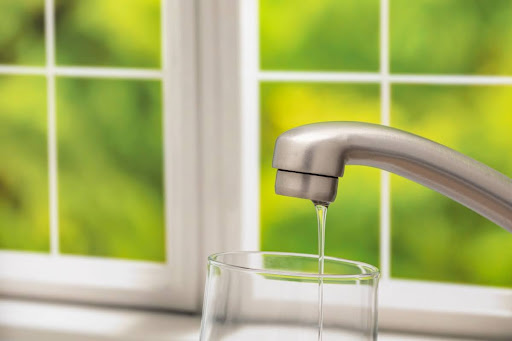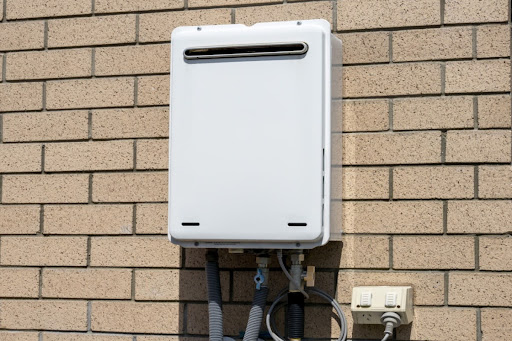Is Your Home Hurricane-Ready? Plumbing, HVAC & Electrical Checks to Do Now

Every summer along the coast brings sunshine and long days, but it also brings the Atlantic hurricane season. These storms are one of the biggest dangers we face, unleashing a powerful and chaotic mix of torrential rain, destructive wind, and overwhelming storm surges. When you get that storm warning, you want to feel prepared, not panicked. Getting your home’s core systems ready is a huge part of that peace of mind.
Your HVAC System Is on the Front Lines Against Hurricane Winds and Debris, So Give It the Protection It Needs
Your outdoor HVAC unit is completely exposed to the elements. It sits there day in and day out, and when a hurricane rolls in, it takes a direct hit from high-speed wind and flying debris. A loose branch or piece of outdoor furniture can become a projectile, causing serious damage. Then, there’s the threat of a flood, which can completely destroy the unit’s sensitive electrical components. Preparing it could save you thousands in replacement costs and keep your home insurance claim simpler.
Tie Down Your Condenser
Your outdoor unit is heavy, but hurricane-force wind can still shift it, damaging the refrigerant lines and electrical connections. You should invest in hurricane straps, which are often used in new construction, to bolt the unit to its concrete pad. This simple tie-down method keeps it firmly in place against the storm.
Power It Down Completely
Before the storm hits, head to your breaker box and shut off the power to your HVAC system. If the power flickers or surges when it comes back on, it can fry the unit’s compressor or circuit boards. Turning it off at the source disconnects it from the grid and protects it from that electrical jolt.
Elevate It Above the Flood Line
If you live in an area prone to flooding or storm surges, your HVAC unit needs to be high and dry. Professionals can raise the unit on a sturdy, built-to-code platform. This keeps the delicate electronics out of the reach of rising water, a common cause of total system failure after a flood.
A Hurricane Pushes Your Plumbing to Its Limits
A hurricane creates a dual threat to your plumbing systems. First, there’s the massive amount of rain that can overwhelm your property, leading to a flood. If your drainage systems can’t keep up, that water will find its way inside. Second, a major storm can damage municipal water systems, leading to a compromised water supply or broken pipes. You need a plan to keep the bad water out and the good water safe.
Put Your Sump Pump to the Test
Your sump pump is your last line of defense against a flooded basement or crawlspace. Don’t wait for a storm to find out it’s not working. You can test it by pouring a bucket of water into the sump pit. The pump should kick on, drain the water, and shut off. A functioning pump can save the foundation of your home.
Locate and Know How to Use Your Water Shut-Off Valve
If a pipe breaks during the storm, you could have a major internal flood on your hands. Likewise, if officials issue a boil-water advisory, you’ll want to stop that water from entering your home’s pipes. Locate your home’s main water shut-off valve and ensure it’s easily accessible and turnable. A quick call to a plumber can help you locate it if you’re not sure.
Keep Drains and Gutters Clear
Your roof is designed to shed tons of water, but only if the gutters and downspouts are clear. Clogged gutters will cause water to overflow, pool around your foundation, and potentially leak into your attic. Making sure all your exterior drains are free of leaves and debris helps the system move water away from your home as intended.
The Electrical Grid Is Incredibly Vulnerable During a Storm
Lightning strikes and downed power lines are hallmarks of a hurricane. When the power grid goes down and comes back up, it rarely does so smoothly. The result is often a powerful electrical surge that can travel through your home’s wiring in an instant. This jolt can destroy everything from your television and computer to your refrigerator and washing machine, creating a massive financial headache your home insurance may not fully cover.
Install a Whole-Home Surge Protector
Those little power strips are fine for your office, but they do nothing to protect your major appliances. A whole-home surge protector is installed directly into your electrical panel. It stands guard over your entire system, stopping a massive surge at the source before it can cause any damage inside your house.
Plan for a Power Outage With a Generator
Losing power for days is a real possibility after a major storm. A new generator can keep your lights on, your refrigerator cold, and your phones charged. Just remember, a portable generator must be run outdoors and far away from windows to avoid carbon monoxide poisoning, and a standby generator requires professional installation to connect safely to your home.
Inspect Exterior Electrical Points
Take a look at the wiring where it connects to your house, often near the roof. High wind can pull on these connections. If you see any frayed wires or loose fittings, it’s a hazard that needs to be addressed. A secure connection is less likely to fail during a violent storm.
Don’t Wait for the Storm Warning. Let’s Get Your Home Prepared Today!
Parks Heating Cooling Plumbing & Electrical can help with our skilled air conditioning, heating, plumbing, and electrical experts. We bring a suite of services designed to help North Carolina residents receive the ultimate level of care for their homes. Contact us to schedule a pre-season check-up.
Contact Us Today
"*" indicates required fields


Become a Parks Comfort Club Member Today!
Sign Up for the Parks Comford Club Plan & Receive Guaranteed Service Day or Night.
- Biannual high-performance system checks for HVAC
- Complimentary plumbing video inspection
- Lowered energy usage & lower monthly bills
- Unparalleled protection & peace of mind
- Member-exclusive service discounts & perks







